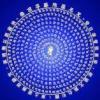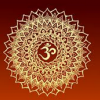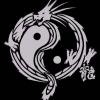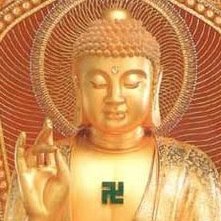Search the Community
Showing results for tags 'Buddhism'.
Found 78 results
-
Greetings Every One! I have been off the forum for quite a while now. Lecturing in China for a few years has come to an end, and now I am back in the states. Starting over in Pennsylvania, Milford. This January I have re-opened my cultivation school, and have classes in full force. Last year I have placed all my practices into two systems White Canopy Platform Cultivation, and Imperial Zong Huan. For a description of both, please visit Gui Zhen Society I hope every one is doing well. Peace and Blessings, Lin
- 4 replies
-
- 2
-

-
- Daois
- Confucianism
-
(and 5 more)
Tagged with:
-
Interesting video. Buddhism statements at 40:20 http://youtu.be/7r-3FNtgOFM
-
Gui Zhen Society in Staten Island NY. Hi Every One! I'm Lin, been on the Dao Bums for ages now, and recently moved back to the U.S. from China. I re-established my cultivation school in Staten Island and am offering a number of cultivation methods I have been putting together over the last several years. One of them is called White Canopy Meditation, a.k.a. Jiu Wu Tan Gong (Nine Five Platform Cultivation). Its quite a lengthy description, so I wil leave a short one here and link you to my personal practice page for the full idea: White Canopy Description Also new to the martial arts world, as well as to the Qigong, meditation, etc world, my own expression of both spiritual cultivaton and martial art , Origin and Illusion (Zong Huan). Origin and Illusion: Zong Huan Peace and Blessings, Lin Ai Wei Gui Zhen Society, Pure Mind Center Pure Mind Center Blog
-
I have felt that the two were more similar than different, but lately I am seeing very great differences. I think that the goal of the two religions in meditation is the same. The Taoists in the Secret of the Golden Flower, say that the ego can remain after the body dies. I think, although I am not sure, that Taoism like Buddhism believes in ending the cycle of rebirths. This would have to be implicit in the Golden Flower otherwise the ego, as the Taoists call it, would simply be reincarnated, which I do not believe is implied in the SGF. But I am feeling that the darma or dhamma of Buddhism is a stricter and more explicitly laid out program. I do not read in Buddhism of the channels, e.g., the Governor, Imperial, or Central channels that have such prominence in Taoism. The Buddhists speak of anatta, non-self, when they describe the sensifacient phenomena of the body. In other words, these are merely material phenomena and not indicative of a "self." But one unanswered question I have is that the pattern and combinations of these material sense events are unique to one person. Therefore when we say Mr. X is prone to headaches while Ms, Y is not, the aggregate of sense events one person has would seem to define a "self". I have not cracked the idea of non-self, either that the world has no self or that the body has no self. This seems like a contradiction of the Taoists and maybe the Tibetan Buddhists both of whom hold that there is some sort of consciousness or "ego" that separates from the physical body and that can be reincarnated or not. Theravada ideas on non-self may contradict Tibetan ones. But if there were no self, soul, ego or conscious entity of some sort, then it would be impossible to escape the cycle of rebirth because there would be nothing that was escaping it. Whether I should regard myself as a self or not is a mystery to me. Any clarification would be appreciated.
-
In Buddhism there is Angulimala, a serial killer who killed 999 people and wore their fingers around his neck in a garland. After meeting the Buddha he threw away his weapons, took up meditation, and became an Arahant. There is also Milarepa, a sorcerer that summoned a hail storm killing 35 people. He sought out a guru and strived in meditation for 12 years until becoming a fully enlightened Buddha. Are there any characters like this in Hinduism? Edit: Also in Taoism because why not.
-
I enjoyed and learnt something from this presentation. Hope you will too
-
I recently picked up the book, "Self Liberation Through Seeing with Naked Awareness" translated by John M. Reynolds. I have always loved the title and the translation. One thing he notes in his commentary is the power of titles. According to John Reynolds, a good student can pick up the nature of the work just from the title. Long after I have read a book, listened to a live teaching, or followed a practice, I typically only remember a phrase to sum it up. In some cases, even the title of a book I've never read sticks with me (the last two below), and comes drifting up from time to time. Some of my favorite titles are: Self Liberation Through Seeing with Naked Awareness (trans. John M. Reynolds) Be as You Are (The Teachings of Ramana Maharshi translated and edited by David Godman) The Wisdom of No Escape (by Pema Chodron) The Real is Unknowable, the Knowable is Unreal (by Robert Powell) What are some teaching titles that stick with you?
-
Just for fun. So this thead is for a Buddhist Giveaway. I'll let this run until 12 pm PST (2400 hrs) Sept. 5. There's also a Taoist Giveaway so check that out too if you're interested. I'm going to have Amazon ship a brand new copy of the following book to whomever wins. I'll even have it shipped internationally should someone outside the U.S. be the winner. The only exception being if that person lives somewhere that Amazon doesn't deliver. The Diamond Sutra Explained by Master Nan Huai-Chin Think of a number between 0 and 200. The person closest to the number I'm thinking of will win the book. Post your guess. The winner can PM me once it's over for his/her shipping address.
-
Hi, i practice kung fu. And i am searching, for a more internal discipline to compliment. Im currently looking between Taoist Chi kung, Buddhist Chi kung or yoga. I know some differences between taoist, and buddhist breathing. Taoist contracts abdomen on inhale and expands on exhale. Buddhist expands abdomen on inhale, and contracts on exhale. But i dont know how this affect Chi circulation, ying/yang principles. Microcosmic/Macrocosmic orbit circulation. I feel taoist breathing more yang than ying because it energizes me more than relaxes me (which i feel on buddhist breathing). I mention yoga, because prior to feeling the circulations, im all over muscular tension, and i feel that before i need to work this energy blockages, this shield that is created by emotional tensions. Example: shoulder, hip openers. What i dont like about yoga, is that i dont perceive (maybe is just my ignorance), a fundamental principle that is comprehensive from a rational point of view, i feel it more god based, religious. Is there some analogy between chi circulation orbits, and prana circulation? Other possibility is doing zazen/kinhin, but i feel that im not ready mentally. Chi kung works proggresively. body, mind, spiritual centers. For Example Lohan Chi Kung: Sap Bak Lohan (energy circulation, body). Siu Lohan (mind circulation, energy from body to mind) Dai Lohan (mind to spirit, meditation) I feel yoga works more on body, and spiritual centers. and zen on mind, spiritual centers. I feel zen is not the answer yet, because i have a troublesome personality/physical-emotions manifestations to resolv first. Japanese are more propense to zen, because they have born/rised/act, in the zen way of life, or this prior western cultural invasion. I find zen, simple as perfection, but i dont feel im ready. Is there a chi kung, that centers on body tension blockages like yoga?
-
Perennial Philosophy/Perennial Technique: Spiritual Thesaurus (copied from a different thread I started, as it seemed worthy of it's own) My vocabulary of terms and practices is pretty much solely western or Indian/Sankrit/Yoga/Tantra, etc. Along those lines, does anyone know of any book, pdf or website (preferably an all in one source) that serves as a sort of spiritual thesaurus between the different traditions/geographical locations? Or a spreadsheet/chart? I believe/know there is a perennial philosophy (Truth is Truth, right?) and like to think that there's a perennial practice as well (hence the similarities between Self Inquiry/Philosophy systems [Jnana, Zen, Buddhism, Advaita, Gnosis, Sufism] and energy work systems [Yoga, Tantra, Neidan, Taoist, Tibetan, Christian Kabbalah, Kabbalah, Dhikr etc; humans are all built the same, right?]). If no such document exists then perhaps this would be an interesting project to take up on here/and through other forums. Part of me that likes to think of universal theory/practice is a bit apprehensive about starting on a new route and coming across potential clashes/dissonances throughout traditions, but I guess this is just ego attachment/fear.
- 21 replies
-
- 2
-

-
- Perennial Philosophy
- Sadhana
-
(and 8 more)
Tagged with:
-

How does one 'choose' a religion, spiritual path, etc?
qvrmy11vz posted a topic in General Discussion
While talking to a Bhakti-yoga practitioner today, I couldn't help but notice the many similarities between the way these practitioners (Hare Krishna folk) live their life compared to Buddhist and Taoist teachings. Basically, and unsurprisingly, religion and/or spirituality share many common principles. But how does one hone in on one school of thought? For example, if I choose to become a Bhakti practitioner, I feel like I would be missing out on a whole other world, namely, Buddhism and Taoism. Anybody here 'migrated' from one religion or spiritual path to another or encountered this question along their own path? Thank you for your time to read this -
These teachings are a combination of esoteric traditions and were traditionally practiced to free the physical, energetic and spiritual body from crystallize emotion in the body and transform that energy to move you forward in your path. This special workshop includes secret esoteric teachings from Daoism & Buddhism. This workshop will include both lecture and hands on application. The total cost of the three day workshop is $600.00. Payment includes a booklet of handouts and a certificate presented from the Internal Alchemy Institute to all individuals who complete the workshop training. A non-refundable registration fee of $200.00 is required to hold each applicants place, with the remaining balance ($400.00) being paid before May 2nd, 2014. When you choose to gift yourself with this experience, you are choosing to: Experience more positive daily shifts. Create healthy and sustainable new patterns. Maintain more balance in your life. Navigate life’s challenges with a peaceful heart. Gain insight and clarity into seemingly uncontrolled thoughts and behaviors. For more information: Call: (831) 204-8014 or Email: [email protected]
-
With his forty five years of experience, Shifu Hayashi (Christopher Goedecke) explains the spiritual nature and the transformative process of the Martial Ways in the Mindfulness Tradition of the ancient lineage masters in this 3 part interview. I know everybody on the Way will find wonderful relevance in this interview. -Tom
-
Hello everyone, this is my first post here. I live in NJ. I am apprentice to a Buddhist monk in martial lineage. We have been working on an interview about spiritual martial arts, internal energy, and living a mindful life. Here it is. I know everyone here will love it. Please tell me what you think. -Tom
-
Wanted to give everyone a head's up. I just discovered today that the book Changing Destiny: Liao Fan's 4 Lessons - with commentary by Venerable Master Chin Kung is available for Amazon's Kindle for only 99 cents. Unfortunately B&N doesn't offer it. Only ebook version I've found so far is the one for Kindle. You can however get a different translation (no commentary) as used copies at both B&N and Amazon as a paperback (I own it also). Four Essays on Karma by Yuen Liao Fan
-

Tsongkhapa's Lam Rim Chen Mo w/ audio and video commentaries
Simple_Jack posted a topic in Buddhist Discussion
I ended up doing a search on the internet to see if there were any video and/or audio commentaries on Lama Tsongkhapa's Lam Rim Chen Mo/The Great Treatise On The Stages of The Path To Enlightenment from any venerable teachers...Lo and behold, I found some resources which I think are good enough to share. For anyone interested you can read the text from a 3 part translation on amazon.com: http://www.amazon.com/Great-Treatise-Stages-Path-Enlightenment/dp/1559391529 A collection of mp3 files from a set of teachings on this text by H.E. Choden Rinpoche: http://www.lamrim.com/lamrim/ Audio commentary by Abbess Thubten Chodron: http://www.thubtenchodron.org/AudioLibrary/index.html A link to someone's youtube channel, that has a set of talks given by H.H the Dalai Lama, on the Lam Rim Chen Mo at Lehigh University in Bethlehem, PA (also included in this link is a partial listing of his other teachings on this text given elsewhere): http://www.youtube.com/playlist?list=PL63437123ADC315D0 Another youtube channel with a video series of talks on the Lam Rin Chen Mo: http://www.youtube.com/user/ChenrezigCtr?feature=watch This is from the official website of H.H. the Dalai Lama which has recordings of numerous teachings and appearances at events, press meetings, etc. I'm posting a link to a series of talks on Atisha's Lamp For The Path To Enlightenment and Tsongkhapa's Great, Middling, and Concise Treatises on the Stages of the Path to Enlightenment: http://dalailama.com/webcasts/post/267-18-great-stages-of-the-path-lam-rim-commentaries Other recommended video/audio commentaries from that website: Je Tsongkhapa's Praise for Dependent Origination - http://dalailama.com/webcasts/post/226-praise-for-dependent-origination--avalokiteshvera-permission-initiation Je Tsongkhapa's The Three Principal Aspects Of The Path - http://dalailama.com/webcasts/post/289-the-three-principal-aspects-of-the-path- 117 replies
-
- 2
-

-
- Buddhism
- Tsongkhapa
- (and 5 more)
-
When I was last posting here, many of you were asking me when my book would be available to purchase. I have been busy with that project and it is now available at Amazon and on Kindle. I made an effort to present many of the pith instructions that I have received from mainly Dzogchen masters, Mahamudra masters and Zen masters, so that anyone could experience the "shift" into Enlightened Mind easily and in a relatively short time. The material is presented in generic language without the need to know anything about Buddhism nor the Tibetan teachings. To learn more about the book please visit my website: www.wayoflight.net Please share your feedback or comments! Jackson
-

Conducting Body, Speech and Mind During and After Meditation
C T posted a topic in Buddhist Discussion
Heart advice from Master Thinley Norbu. Thus it is said. In order to sustain the wisdom mind of the Great Perfection, if one wonders how body, speech and mind are directed to engage in this practice, it is as follows. For beginners, in order to purify the flow of karmic energies so that they enter the space of the central energy channel, the body must be straight. If the body is straight, the channels are straight. If the channels are straight, the vital energies can flow. If the vital energies can flow, awareness becomes clear. Whenever awareness becomes clear, the pure essential nature of mind becomes apparent, free from clearing away or keeping. In order for that to occur, in the seven-point vajra posture, the legs are crossed, the hands are in the gesture of evenness, the stomach is pulled back toward the spine, the chin is slightly lowered, the shoulders are open like a condor's wings, the tongue is touching the palate, and the eyes are looking out over the tip of the nose like a tiger, directly into space. Various methods increase and enhance samadhi, including the vajra recitation with the movement of breath by inhaling with the syllable OM, letting the breath remain with the syllable AH, and exhaling with the syllable HUNG. This practice is helpful to rely on in order to increase stability in samadhi. According to the wisdom mind of the extraordinary Great Perfection, however, should one be a great practitioner of sustaining self-nature as the sole essence of awareness, then all phenomena are synthesized as wisdom appearances, sound, and awareness. Only knowing that the self-nature of one's own mind is the Three Kayas and never waver from dharmadhatu, there is nothing other than the natural abiding of body, speech and mind, so it is absolutely unnecessary to apply effort to fixating on acceptance and rejection. The precious Vajra Master Guru Rinpoche said to his consort, Khandro Yeshe Tsogyal, in the Essence of Butter Pith Instructions: Devoted consort, listen to me. Even though there are many profound pith instructions for the body, just leave the body comfortably at ease. Everything is contained in that. Even though there are many pith instructions for controlling the vital energies, such as mantra recitations and others, be like a mute, free from speaking. Everything is contained in that. Even though there are many pith instructions for the mind such as holding, loosening, creating, gathering, drawing in, and others, in the ease of one's own uncontrived nature that settles naturally, everything is contained in that. From Omniscient Longchenpa, "With relaxed body and mind, in the mind's bed of tranquility, Like a person with a mind free from engagement who has nothing to do, Without being rigid or careless, Leave the body and mind comfortable. However one stays, stay in one's pure nature. However one abides, abide in one's pure nature. However one goes, go in one's pure nature. In the space of enlightenment, there is naturally no going or coming. Not going and not coming is the wisdom Body of all the Victorious Ones. Whatever one says, say in one's pure nature. Whatever one speaks, speak in one's pure nature. In enlightened mind, there is naturally no saying and speaking. Free from saying and speaking is the wisdom Speech of all the Victorious Ones of the three times. Whatever one thinks, think in one's pure nature. Whatever one considers, consider in one's pure nature. From the beginning, there is no thinker and no considerer. Free from thinking and considering is the wisdom Heart of all the Victorious Ones of the three times. From nonsubstantiality, everything that manifests is Nirmanakaya. Pure appearance of self-sustaining inconceivability is Sambhogakaya. The state of no original substance is stainless Dharmakaya. The Three Kaya's result is simultaneously accomplished in the inconceivable state." Thus as he says, this must be realized. As Saraha said, "Since sole mind is the seed of everything, whoever aspires to transcend samsara and enlightenment is granted the fruit of their wishes. I prostrate to mind, like a wish-fulfilling jewel." Just recognize again and again one's own unconditioned stainless wisdom mind. Buddhas are buddhas due to their faultless, one-pointed, unending recognition of this. By realizing and applying this, there is no Dharma to accept or throw away. All phenomena pervade in the sole oneness of dharmata. There is nothing to discriminate, like on an island full of gold. Once again, the great saint Saraha beseeched, "If there is recognition, everything is included there; no one has known anything other than that." As it is said in The Great Perfection Tantra Containing the Absolute Meaning: Since the mind experiences the three times, The lives of the past, present and future will occur. Since the mind changes and transfers, That is why the body is born and dies. Since illness, happiness, suffering, and so on Are one's mind, this ripens as samsara. May all beings experience the unending causes of equanimity, peace and joy. -

Discriminations Between Buddhist and Hindu Tantras
Tibetan_Ice posted a topic in Buddhist Discussion
Hi, I came across this web page the other day. It is a comparison of the types of siddhis or powers achieved by Buddhists and Hindus. Is there any truth to the idea that Buddhism is superior to Hinduism because the achievements are greater? Is Yogi C. M. Chen authentic? He seems to have advanced knowledge of many things.. He is claiming that Brahma was converted by Buddha... http://www.yogichen.org/cw/cw28/bk029.html Comments? TI -
Hi all! I have seen my name pop up quite often lately regarding Dzogchen teachings. I would enjoy the opportunity to correct many of the comments regarding my relationship to the Dzogchen teachings and to clarify several points that are incorrect regarding Dzogchen practice and realization. There seems to be a clique of "Hinayana style Dzogchennist Taliban" panditas here that confuse conceptualization for rigpa wisdom or yeshe. One can't intellectualize one's way to rigpa. In spite of what many from this clique consider my view to be, this recent text I wrote contains the view that has been recognized here: If perceptions are not "objectified" and the perceiving is not "subjectified", there is then only the "unestablished". When the "unestablished" arises one cannot frame it in any conceptual way or else it becomes the "established". The "established" is then something perceived and objectified. If something is perceived and objectified then for that to be possible the perceiving must have become subjectified. Knowing this we find Nirvana is the condition of the "unestablished". Further comment: In practice, this means we leave "appearances" as-is without creating a story that defines them in any conceptual way. Likewise we leave our "perceiving" undefined, not creating a story about a "me", the perceiver. Continuing in this completely open and undefined space of experience, how can each moment not be Nirviana? I think this formula shows the same point that Zen, Dzogchen, Mahamudra, Madhyamaka and the Buddha's earliest teachings point to... Jackson Peterson. My background: http://mumonkan.org/resources/jackson.aspx
- 450 replies
-
Hey guys! Lately, I've been struggling about what my belief falls under. I have made a post in my introduction to this site that stated this question, and I will quote it below: I've been looking things up and it is pretty confusing. I also associate myself with atheist pages on facebook and they do say I can be a Buddhist Atheist but not a Taoist Atheist because apparently Taoists look up/worship deities? Also while I'm at it, I do have a question regarding homosexuality. What is the general view of homosexuality to Taoists? I will struggling following a belief that condemns love. I know Buddhism is rather alright with it albeit there is no firm statement about it. Thanks in advance!
-
Muay Thai Documentary 8 Limbs: Life Of A Nak Muay- Born For The Fight- Muay Thai Boran The noble Art- http://www.youtube.com/watch?v=FCSy151WrIg Training- Heavy Bag power training- Head High kicking- Kicking trees-
-

In the Name of Enlightenment - Sexual Abuse by Sogyal Rinpoche
DalTheJigsaw123 posted a topic in Buddhist Discussion
For more information about the ongoing sexual abuse by Sogyal Rinpoche see: http://behindthethangkas.wordpress.com http://www.guardian.co.uk/commentisfree/belief/2011/jul/01/lama-sex-abuse-sog... http://thedorjeshugdengroup.wordpress.com/2012/03/27/sogyal-rinpoche-and-the-...












